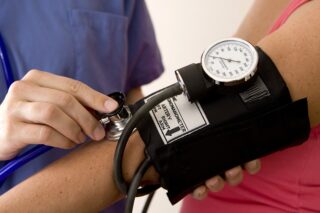
A recent poll conducted by the Heart Rhythm Society and the National Stroke Association shows communication between doctors and Afib patients may be lacking – and that could be leading to a higher risk for stroke.
According to the study, many atrial fibrillation patients are reluctant to talk about symptoms or seek treatment, often because they don’t understand the seriousness of their condition, including a significantly higher risk of stroke. Fortunately, it doesn’t take much to improve communication, and improve your health in the bargain.
What is “good” communication?
In a nutshell, good communication means the patient feels comfortable talking with their doctor about their health concerns and feels confident in the guidance and care they receive. It’s the underlying principle that helps patients and doctors form strong partnerships that can ensure the safest, most effective treatment is being provided throughout the course of care.
At Heart Rhythm Consultants, Dr. Dilip Mathew has always made communication and patient education top priorities. That’s because he recognizes that both of these elements are critical to understanding each patient’s symptoms and experiences – and to developing an effective treatment plan that’s created specifically for each patient.
Multiple studies have demonstrated the importance role patient-doctor communication plays in making sure the best, most appropriate treatments are prescribed for a whole range of health issues, including stroke and atrial fibrillation.
Talking to your doctor
Dealing with a health issue like Afib can be stressful, and stress can make it difficult to keep your thoughts straight when speaking with your doctor. It’s not uncommon for patients to remember concerns they meant to discuss hours after the appointment is over.
One of the best ways to make sure you make the most of every appointment is to keep a running list of questions and concerns you want to bring up during your next appointment with Dr. Mathew. You can also write down any symptoms you may experience with a few details about the event and anything you might think could have contributed – for instance, excessive physical activity or an illness like a cold or flu. And don’t forget to make a list of any medications you may be taking, as well as supplements or vitamins. That type of preparation can go a long way toward making sure you get all the answers you need during your appointment, and it can also help Dr. Mathew develop an even greater understanding of your condition and your experiences.
If you have questions about Afib or other heart rhythm issues or treatments, schedule an appointment today with our Sarasota or Venice office and get the answers you need to lead a healthier, more confident life.



